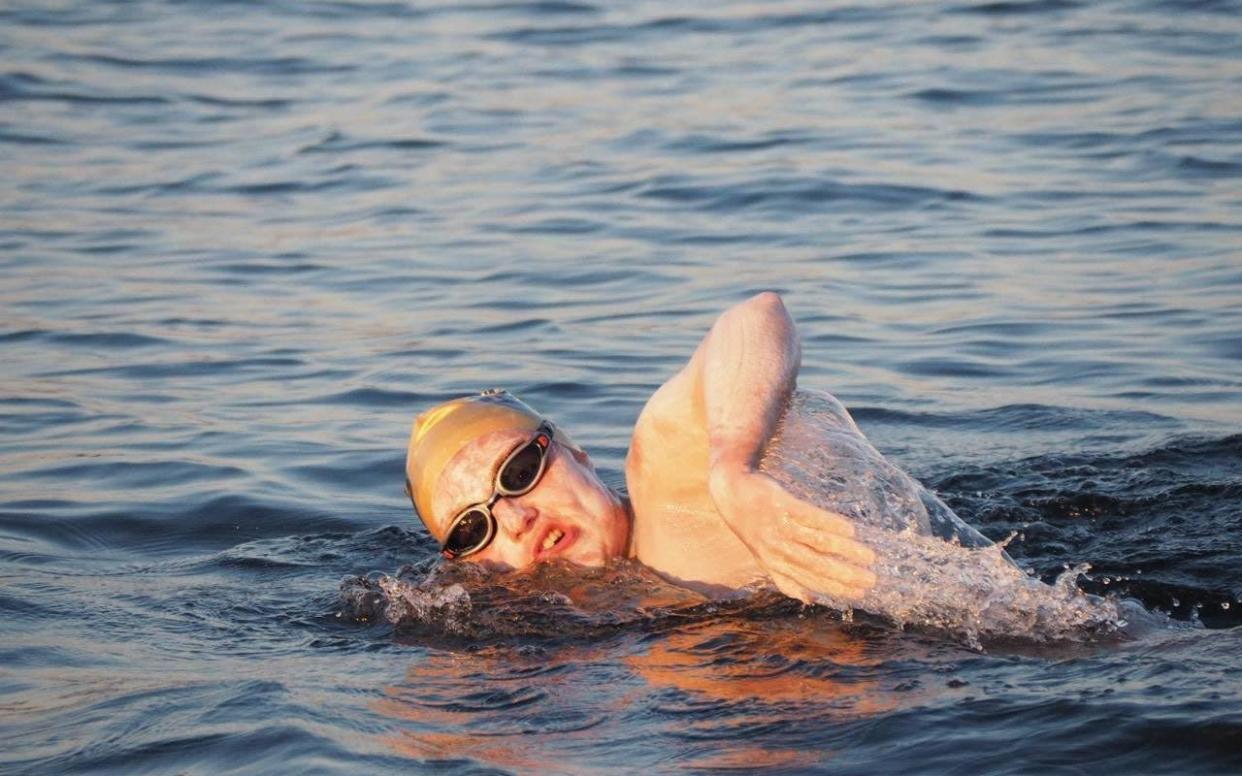Wild swimmers take the plunge as British beaches, bays and lakes get cleaner

British beaches, bays and lakes have achieved record levels of cleanliness amid a surge in the popularity of wild swimming.
Of the 420 places where you can take an outdoor dip in England, 300 were ranked as having 'excellent' water quality, according to an annual report by the Department for Environment, Food and Rural Affairs (Defra).
This is the best rating the country has received since the records system began in 2015.
The impressive ranking comes after recent figures revealed that the number of people regularly swimming in wild waters increased from 266,500 to 490,660 between 2016 and 2018.
Defra's report highlights that almost all swimming spots achieved at least the minimum standards for clean water, with 71.4 per cent achieving the 'excellent' standard (compared with 63.6 per cent in 2015) and 21.9 per cent categorised as 'good'.

Just seven sites (1.7 per cent) failed to meet minimum standards: Tynemouth Cullercoats, Scarborough South Bay, Clacton (Groyne 41), Ilfracombe Wildersmouth, Combe Martin, Burnham Jetty North and Weston-super-Mare Uphill Slipway.
The scores are calculated by the Environment Agency, which measures the levels of bacteria in water which can make people ill and combines them with readings from the previous four years. The latest results cover the period 2016 to 2019.
Rankings can be affected by weather and pollution from agricultural and urban sources.
Industry body Water UK's chief executive Michael Roberts said: "These results are testament to the ongoing determination of the water and sewerage industry to protect and enhance our precious natural environment.
"Our bathing waters are better than ever before, providing solid proof that the huge investment by companies is paying off."
Mr Roberts said the goal is to cut serious pollution incidents by 90 per cent between 2020 and 2025.
"While these results are excellent, we want to go even further, which is why the sector has made a major commitment to spend a record £5 billion between 2020 and 2025 on environmental improvements," he said.
Health benefits of outdoor swimming are said to include improved circulation and sleep quality, better skin and increased metabolism.
Suddenly immersing the body in cold water is also reported to shock the immune system into producing more white blood cells and antioxidants.
Sharon Lock, Swim England Open Water Development Officer, said earlier this year: “We’re delighted that so many more people are taking the plunge and trying open water swimming.
"It’s great to see the numbers of regular open water swimmers is also on the increase.”
Under the EU Bathing Water Directive, member countries must monitor and assess the bathing water for at least two types of bacteria and inform the public about bathing water quality and beach management.
Defra told The Telegraph: "Fluctuations in results from one year to the next are to be expected as many factors affect bathing water quality for example, localised pollution sources and the weather.
"The results are an assessment of up to four years of sampling data. If there are one or more years that were particularly affected by wet weather within the data set, then this could cause fluctuations in results".

 Yahoo News
Yahoo News 
